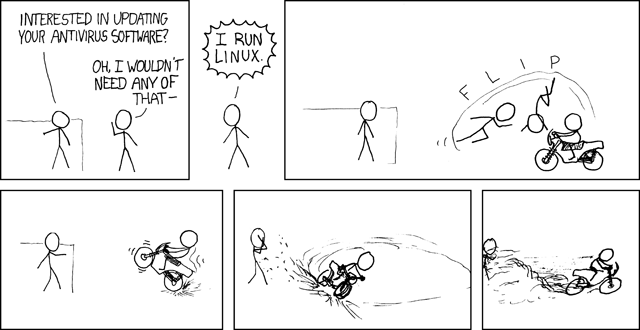- 1 Post
- 562 Comments

 7·4 days ago
7·4 days agoI misread the police car on the thumbnail as “Meesa police” and thought it was going to be a jarjar binks meme before I read the title
Yeah they don’t force you to toss it if you have a scrap of trash in your pocket that you forgot about but they do make a stink about you having it because how dare you
How did I end up on NCD again?
I’m a be real, I didn’t know I needed to know about the models of water fountains I see in public spaces but now its tickled my autism and I just need to know more. Big water fountain got their money’s worth I think…
 4·9 days ago
4·9 days agoThe sad thing is when you can get actual numbers on what the costs of things are to the state and federal governments to keep things the way they currently are it’s really bonkers that policy is setup the way it’s setup.
The United States spends on average about $72,500 per year per incarcerated individual, which given the number of people who are in prison due to circumstances of poverty is a lot more than it would cost to simply have the funds available to individuals to intervene before they make the choices that land them in prison. For context the median individual income in the US is $37,585
Medicaid has an median cost per enrollee of $9,108 which is about the same unsubsidized cost of private health insurance, except Medicaid has no deductible, no copays (I believe some medications do have pretty low copays but that’s all that I’ve seen during periods where we did qualify or for my special needs child who’s on a special Medicare plan for children with disabilities) and generally means you simply receive the care you need without paying a dime to the medical facility. In other words, Americans could feasibly collectively pay the government exactly what they already pay private insurance companies in premiums and receive better coverage for less cost than under the current system.
The average cost per homeless person (this is primarily a cost in extra social services to support their existence) is $35,500 per year in the US. The average annual cost of rent in US is $20,400. The US could simply pay to rent every homeless person an average apartment in the country and save $15,000/year per person in social services, and that’s before even considering more creative options such as public housing, or providing subsidies/incentives to house the housing insecure in lower cost regions of their respective states (which might well save small town America, given most small towns are consistently shrinking in population)
The unavoidable conclusion is that American politicians simply choose to burn unthinkable billions of dollars every year to perpetuate human suffering
There’s a number of mods that add space travel. Ad Astra is the most recent one
I specifically remember being in elementary school and learning that the school code of conduct disallowed “throwing of missiles” which was a blanket term for any item that the school deemed should not have been thrown including snowballs
Specifically light framing which was pioneered in the early 20th century and became the dominant construction method in North America during the post-war housing boom.
 2·10 days ago
2·10 days agoOnly if your employer requires a doctor’s note for sick days. Honestly if I ever have another job that does require a doctor’s note I might just make a habit of forging those because fuck that noise
 7·10 days ago
7·10 days agoThe local bus company does a “mystery bus trip” every couple of months or so where you pay a flat fee, hop on the bus and go do something. They give you just enough info to know if you might want to do it or not and how to dress and the rest is just up to whatever happens
For those who like podcasts but want to ensure they get the right format for the podcast, go for the video version. Pure audio is fine and all but you don’t get to see the slides or Justin’s terrible scribblings overtop of the slides.
This podcast however is one where you can easily have the video playing while you do other things, glancing occasionally when they shift to a new slide or start drawing diagrams on the slides

 51·10 days ago
51·10 days agoRealistically the difference is in how Linux mitigates the common vectors for attack that Windows doesn’t. Most malware targeting individual workstations gets in by either supply chain attack, vulnerable web renderer or by tricking the user into installing it.
Centralized repositories with centralized build tooling limits opportunities for supply chain attacks, plus helps prevent users from accidentally downloading a Trojan when trying to grab other software. Containerizing web applications helps limit browser exploits, and less “features” phoning home means a default incoming-deny firewall policy will largely prevent most vulnerabilities from being remotely serious.
So for an individual workstation, Linux is significantly safer from viruses. In the enterprise it’s a completely different story where the threat environment does require defense in depth regardless of your choices of vendors
The amount of furniture moving we do today is pretty insane. I kind of hate it.
The fact is, the average person owns so much more now than they did at any other point in history. In the 19th century the average American home was about 400-800 sq feet with Victorian mansions pushing 2000 sq feet (also worth noting that the concept of a bedroom is only about 200 years old, and the option of kids not sharing rooms is only about 50 years old)
I’d also argue that housing becoming a commodity is also a factor. With rapidly increasing rents, rental properties as an investment and non-present landlords one is forced to move in order to maintain their lifestyle far more frequently than they should
Honestly in this historical context, I feel like there’s some wisdom to the small home and minimalism movements, primarily in that it returns to a more sustainable lifestyle in our urban modern lives
We ultimately had to not use the upstairs for our bedroom because a queen sized bed can’t fit up the stairs. We use the largest main floor room as our bedroom (which inconveniently one has to walk through that room to get to the stairs)
It’s pretty clear that the stuff people choose to have in their homes today is different from the stuff people chose to have in their homes a century ago
My house was built in the late 19th century with an expansion added on in the 40s. The build quality of the original part of the house compared to the later built section is night and day, with the newest part of the house being the part that has aged so much worse due to trying out this new wood framing thing they started really getting into after the war
Yup we teach our kids not to use “grownup words” and that they can use “grownup words” when they’re grownups and can make the grownup decision of when and when not to swear. Because ultimately that both meets societies expectations related to swear words while fostering a healthy relationship with language.
 3·11 days ago
3·11 days agoI got a sizable (in comparison to my pay rate) holiday bonus when I interned at a regional bank, and my current job that I’m leaving with a national contract cleaning company has bonuses based on the company’s financial performance. The company is spiraling the drain so a pittance of a bonus was dished out this year to try to shore up morale after a bunch of layoffs (sounds like the 3 years prior the bonuses were several thousand dollars a person) and now they’re laying everyone off to relocate the HQ. So basically depending on where you work you might get pretty decent bonuses







That would put the original post in 2002, 4 years before Twitter was founded, 2 years before Facebook was founded, 1 year before Myspace was founded and 5 years before Tumblr was founded